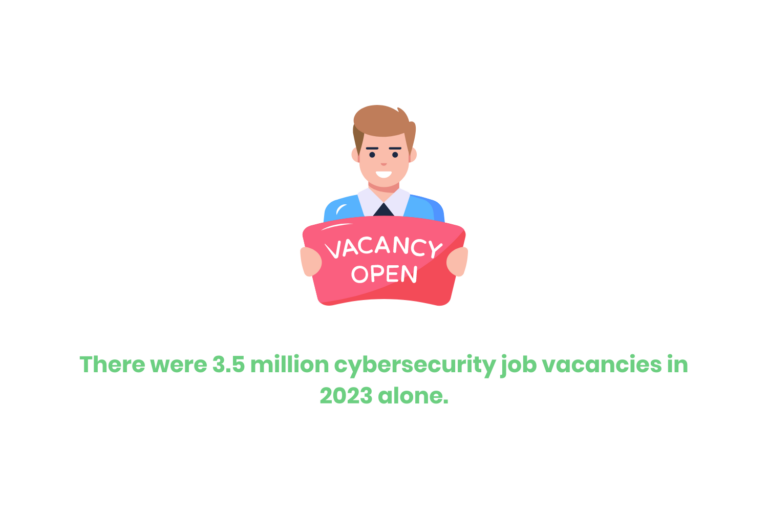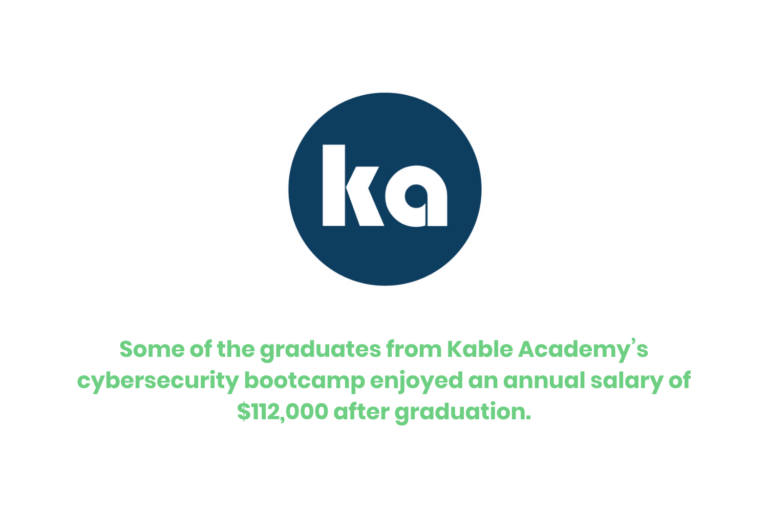In the rapidly evolving world of technology, cybersecurity stands out as a critical field. As digital threats grow more sophisticated, the demand for skilled cybersecurity professionals has skyrocketed.
Cybersecurity Magazine reported that there were 3.5 million cybersecurity job vacancies in 2023 alone. It has gotten to a point that the need for cybersecurity professionals has become insatiable.

Traditionally speaking, a college degree was considered essential for launching a career in this sector. However, that narrative is changing. Today, there are more pathways than ever for individuals without a formal degree to enter and succeed in the cybersecurity industry.
This blog post will delve into how one can secure a job in cybersecurity without the conventional academic route, emphasizing the value of alternative education paths such as bootcamps, certifications, and self-directed learning.
The Growing Demand for Cybersecurity Professionals
The digital age has ushered in an era of unprecedented connectivity and innovation, but it has also brought about increasing vulnerabilities in information security. Businesses, governments, and individuals are all facing heightened risks from cyber threats, which range from data breaches to malware attacks.
Breaches are so prevalent that experts predict that they’ll cost the global economy $10.5 trillion by 2025 alone.

This increase in attacks, alongside the costs that come with them, has a direct effect on the cybersecurity job market. In other words, it’s booming in response, with a projected growth rate that far outpaces other fields.
As I alluded to in the introduction of this blog post, there are millions of cybersecurity positions that will remain unfilled in the coming years, primarily due to a pervasive skills gap.
This demand creates significant opportunities for those who can demonstrate the necessary skills, even if they lack a traditional degree.
What Matters Most? Skills Over Degrees
Cybersecurity is unique among tech disciplines in that practical, hands-on skills are often more valuable than theoretical knowledge alone.
Employers in this field typically prioritize the ability to solve complex problems, secure networks, and mitigate threats over academic credentials.
Research conducted by Triplebyte found that bootcamp grads are better with tasks that challenged their practical skills than university grads.

Proficiency in technical skills such as intrusion detection, secure software development, and threat analysis is highly sought after.
Additionally, soft skills like problem-solving, critical thinking, and effective communication are equally important, as cybersecurity professionals often need to collaborate with other teams and communicate security risks to non-experts.
Showcasing these abilities through personal projects, internships, or even your own independent research can make a compelling case to potential employers.
Bootcamps and Intensive Training Programs
For many aspiring to enter the cybersecurity field quickly, bootcamps present a viable alternative to traditional four-year degree programs. These intensive, short-term training programs are specifically designed to equip students with industry-relevant skills in a condensed time frame.
Typical bootcamps last anywhere from three to six months and are intensive in nature, often requiring full-time commitment. Curriculum in these programs is dynamic and updated regularly to keep pace with the latest cybersecurity trends and technologies.
Participants engage in a variety of learning modalities, including lectures, workshops, and most importantly, hands-on labs and real-world simulations.
To make things even better. Graduates from these programs tend to enter the job market with a strong foundation in applied cybersecurity, making them attractive candidates to employers looking for job-ready talent.
Graduates from our cybersecurity bootcamp enjoy a 94.5% job placement rate!
Industry Certifications Can Open Doors
While hands-on experience is crucial, industry-recognized certifications can significantly enhance a job seeker’s profile.
Certifications such as CompTIA Security+, Certified Information Systems Security Professional (CISSP), Certified Ethical Hacker (CEH), and Cisco’s CCNA Security are widely respected across the industry.

They serve as benchmarks of professional achievement and demonstrate a standardized level of expertise that employers can trust. Preparing for these certifications requires rigorous study and often hands-on practice, which further develops your proficiency in key areas of cybersecurity.
Holding one or more of these certifications can make you a competitive candidate, often equating to or surpassing the qualifications of degree-holders in the eyes of employers.
Luckily, we base the curriculum of our bootcamp on these industry standard certifications. That’s probably why some of our graduates enjoyed an annual salary of $112,000 after completing our cybersecurity bootcamp.
Leveraging Personal Projects and Continued Learning
In the field of cybersecurity, continual learning and adaptation are paramount.
The landscape of cyber threats evolves rapidly, and staying updated with the latest security practices is essential.
Engaging in personal projects such as setting up your own security labs, participating in bug bounty programs, or contributing to open-source security software can demonstrate your passion and commitment to the field.
These projects provide practical experience and also help you build a tangible portfolio that you can showcase to potential employers.
Additionally, involvement in the cybersecurity community through forums, blogs, and conferences can enhance your learning and connect you with other professionals.
In any career path, networking is your alley. Luckily, the connections and fellow classmates you’ll work with throughout our cybersecurity bootcamp will establish an ever-lasting relationship that will help you grow in your career in the outyears.
Conclusion
Securing a cybersecurity job without a traditional degree is not only possible but is becoming increasingly common.
The industry values practical skills and real-world experience, which can be obtained through alternative educational paths like bootcamps, certifications, and self-driven projects.
If you’re ready to embark on a rewarding cybersecurity career, consider these alternatives to traditional education.
At Kable Academy, we’re committed to helping you achieve your professional goals in cybersecurity. Our comprehensive bootcamp programs provide you with the knowledge, skills, and support necessary to thrive in this dynamic field. With our strong emphasis on hands-on learning and industry connections, you’ll be well-prepared to join the ranks of cybersecurity professionals.
Enroll in our program today and take the first step toward a successful career without the need for a traditional degree.